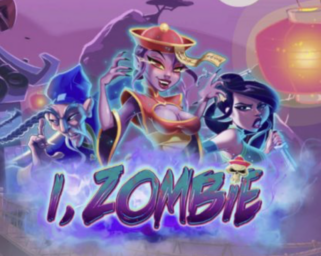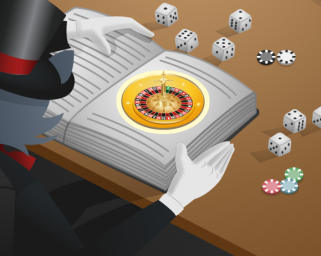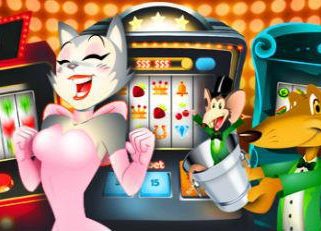When most people think of addictions, they picture a chemical dependency on alcohol or drugs, one which robs the user of all self-control and leads to a life of ruin. We don’t usually consider kleptomania (compulsive shoplifting) or ludomania (compulsive gambling) as a physical addictions because no drugs are involved. How can a person become addicted to gambling? However, new studies show that the brain rewires neural circuits in drug addicts and compulsive gamblers in similar ways.
A Hardwired Rewards System
As biological beings, we are motivated by nature with a wide variety of chemical signals from our body in order to ensure the survival of the individual and the species. When you are hungry, your brain tells your stomach to increase hunger pains to motivate you to fill your belly. The survival of the species is just as basic. Hormones start racing around the human body at the time when a human reaches reproductive maturity. Without these strong chemical motivators, both the individual and the species would wither and die.
brain tells your stomach to increase hunger pains to motivate you to fill your belly. The survival of the species is just as basic. Hormones start racing around the human body at the time when a human reaches reproductive maturity. Without these strong chemical motivators, both the individual and the species would wither and die.
But it’s not all just chemicals forcing us to eat and reproduce. There is another strong motivator which keep us coming back for more: pleasure. We don’t merely eat to stop the hunger pains; we enjoy the smell and taste of a delicious meal. And that Wow! moment at the end of a good roll in the sheets is all just a massive chemical reward for our brains. That great feeling is the brain telling us ‘Great meal! You get to live another day’ or ‘Thanks for your contribution to the gene pool!’ And the reward is what keeps us coming back for more and more.
The Straight Dope
The chemical messenger that brings us all that joy is called dopamine. When the brain is stimulated by addictive drugs like cocaine, amphetamines, or alcohol, it pumps out 10 times more dopamine than usual. Dopamine also rushes through the brain of a gambler when he or she is risking great losses for great gains. This feeling is often called ‘gambler’s high’ or ‘gambler’s rush.’ And that rush can be the start for someone to become addicted to gambling.
In addition to the financial reward you receive for a good win, there is also the brain’s reward system kicking in. And with any human activity involving pleasure, there is always the potential for overindulgence and possible addiction.
Your First High
Many drinkers remember their first drink. That warm, tingling feeling, like ants crawling over your brain and tickling it, follow by flushed cheeks, laughter, and a slightly off-balance feeling. That  was your first real taste of a dopamine dose, and damn it felt good. Until you had too much. Then you got sick and barfed on your friend’s carpet. This is how the body signals us to slow the hell down, damage is imminent. Eventually, we get better at handling alcohol, and we are able to ‘hold our liquor’ without the messy endings.
was your first real taste of a dopamine dose, and damn it felt good. Until you had too much. Then you got sick and barfed on your friend’s carpet. This is how the body signals us to slow the hell down, damage is imminent. Eventually, we get better at handling alcohol, and we are able to ‘hold our liquor’ without the messy endings.
The body develops a tolerance to alcohol and drugs, and therein lies the potential for addiction. We keep on drinking, getting high, or gambling in order to reproduce that reward. But after time, it takes more and more to get that same feeling. So we increase the amount of stimulation needed to achieve the desired effect. There is a reason we become resistant to the stimulants; the brain is trying to chemically protect itself from damage. Hey, the brain told us to slow down by making us puke. But we didn’t listen. Now the brain has no choice; it unleashes the chemical warfare.
Chasing the Dragon
In order to protect itself from the onslaught of overstimulation (alcohol, drugs, over-eating, etc.), the brain reduces the amount of dopamine molecules released. The result is that the thrill seeker needs to consume more and more of the stimulant to achieve the same high. This is how we build up our tolerance to chemical substances.
What leads to addiction is constant overindulgence with lower and lower rewards. This is when the body starts displaying the usual symptoms associated with the addict: withdrawal pains, shakes, nervousness, nausea, and panic. What started out as a means to achieve a reward became a habit.
Gambling On Your Brain
That gambler’s high you feel after winning a hand of poker or playing online slots diminishes over time. It’s not that you value the financial reward of the win any less, it’s just that the dopamine levels in your brain have compensated after repeated stimulation. This type of behavior and response is what drives new studies of addiction. Whether the stimulant is chemical (as in drugs) or experience-based (as in gambling), the dopamine rush and the law of diminishing returns is the same.
The double-edged sword of addiction also results in lower impulse control. While your brain is fending off hordes of chemical invaders, the neural pathways to the prefrontal cortex weaken. The prefrontal cortex is directly responsible for impulse control. Call it the ‘voice of reason’ in your head that tells you to avoid dangerous behavior. The more and more a person indulges in addictive behavior, the greater the effect on the prefrontal cortex. And the voice of reason gets quieter, leading to the destructive behavior of an addict. For drug addicts, this may lead to withdrawals, stealing to support the habit, and prison. For the gambler, it may mean losing everything they own and everyone close to them.
Serious Repercussions
Most people don’t gamble their house on the first bet. They start betting a few bucks at a time, until the first big win. That dopamine kicks in, combined with the financial incentives. The more you risk, the greater the potential reward. Psychologists who study addictive behavior observe that gambling affects the brain in the same way as drugs. The gambler can’t stop, loses impulse control, and over-compensates for losses with more gambling. As a result, some gamblers become addicted to gambling. Studies also show that the serious gambler is not addicted to winning, rather, they crave the ‘rush’ associated with the risk. And this is what can lead to addiction.
risk, the greater the potential reward. Psychologists who study addictive behavior observe that gambling affects the brain in the same way as drugs. The gambler can’t stop, loses impulse control, and over-compensates for losses with more gambling. As a result, some gamblers become addicted to gambling. Studies also show that the serious gambler is not addicted to winning, rather, they crave the ‘rush’ associated with the risk. And this is what can lead to addiction.
A gambling addict is not as easy to spot as a substance abuser. Drug addicts display obvious physical signs of withdrawal, such as altered appearance and behavior (i.e. red eyes and twitching). But a gambling addict can go to work and spend time with their families as usual. Gambling addicts can only be diagnosed by observing specific warnings and danger signs.
Are You Addicted to Gambling?
According to the Diagnostic and Statistical Manual of Mental Disorders, Fifth Edition (DSM-5), gambling addiction is listed as an addictive disorder rather than an impulse-control disorder (i.e.  compulsive shopping or pyromania). As is the case with substance abusers, gambling addiction has genetic factors involved. Certain people may have a genetic predisposition to alcoholism, and certain people are also more likely to become compulsive gamblers. The DSM-5 published a list of symptoms of a gambling addict. If you display at least four of the following symptoms in a 12-month period, you might have a gambling problem.
compulsive shopping or pyromania). As is the case with substance abusers, gambling addiction has genetic factors involved. Certain people may have a genetic predisposition to alcoholism, and certain people are also more likely to become compulsive gamblers. The DSM-5 published a list of symptoms of a gambling addict. If you display at least four of the following symptoms in a 12-month period, you might have a gambling problem.
- Gambles with increasing amounts of money to obtain the ‘gamblers rush.’
- Attempts to stop gambling results in restlessness or irritability.
- Repeated attempts to stop gambling have failed.
- Preoccupied with gambling (reliving past gambling experiences, thinking of ways to get more gambling money).
- Gambles when feeling distressed, guilty, anxious, or depressed.
- Chasing losses: throwing good money after bad trying to ‘get even.’
- Lies about gambling on a regular basis.
- Loss of a job, career opportunity, or relationship due to gambling.
- Relies on money from others to alleviate desperate financial situations caused by gambling.
If you or someone you care about displays four or more of these symptoms, help is available. Many of the better casinos are taking responsibility for helping people addicted to gambling. A responsible online casino should have links for gamblers seeking help. While they are in business to make money, a casino does not want a player to gamble so much that they cannot repay the debt. This is bad for both the gambler and the casino.


















